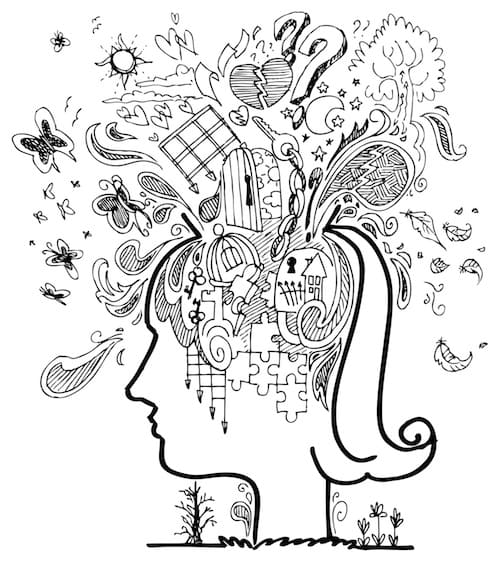January 04, 2019
By Luna Greenstein
 Most days, anxiety affects every aspect of my life. My intrusive thoughts create insecurities that make me believe things that aren’t true, wrecking my self-esteem and changing how I act. My reaction to this is often to control every aspect of my life, so I can stop my anxiety from judging me for my actions. This controlling behavior runs deep, from fixating on my diet to inflexibly planning every hour of my time to influencing precisely how I want others to perceive me. I live in a caged world of my own making filled with nonstop noise and constant rules and the subsequent self-judgment when I break them.
Most days, anxiety affects every aspect of my life. My intrusive thoughts create insecurities that make me believe things that aren’t true, wrecking my self-esteem and changing how I act. My reaction to this is often to control every aspect of my life, so I can stop my anxiety from judging me for my actions. This controlling behavior runs deep, from fixating on my diet to inflexibly planning every hour of my time to influencing precisely how I want others to perceive me. I live in a caged world of my own making filled with nonstop noise and constant rules and the subsequent self-judgment when I break them.
With all that said, I’ve never fully seen myself as a person with “real” mental illness. I feel like I don’t have the “right” to say I have lived experience. In fact, at the NAMI National Convention this past summer, I asked my friend whether I should even wear a lived-experience ribbon. She expressed that of course I should. “Anxiety is a mental illness,” she reassured me. But the truth was, I was uncomfortable claiming I had lived experience at a convention filled with people who’ve had it “worse than me.”
It’s easy for me to feel this way working for NAMI. After all, it’s my job to read stories of the struggles our community faces. I hear of their debilitating symptoms, their inability to get treatment, their resistance to medication. I hear from people who have lost loved ones to suicide. I hear from people who have no support system. It’s hard for me to consider that my anxiety is “real” in comparison to the long list of tragic truths I’m exposed to every day.
Self-invalidation and anxiety create a cycle in which the two feed off of each other. Whenever I talk to someone about my anxiety, I feel shame and self-judgment immediately afterward. I feel as though I shouldn’t be “complaining” about such “small problems”—which starts me on an anxiety spiral: “Your anxiety isn’t even that bad. You can’t handle pain. You’re just weak and sensitive. People are going to get tired of hearing you talk about this.” It doesn’t help that I’ve had these words spoken directly to me from people in my life; my brain just plays their damaging messages on repeat, but in my own voice.
A big part of learning to cope with anxiety has been accepting the condition as part of my life. Telling myself it’s not “a real mental illness” is like denying its presence, which only makes the anxiety stronger.
Luckily, I have a therapist who is helping me work though my self-invalidation. She taught me that when I start believing my own insecurities, I must ask myself the question, “What is the evidence to support this?” Which is often nothing. She also tells me to remind myself that my feelings and my struggles are valid. That telling myself I’m not “allowed” to feel bad because other people have it worse is like telling myself I’m not allowed to feel happy because other people have it better.
I also try to remind myself that it’s not about “who has it worse” when it comes to mental illness. It’s about anyone who’s affected by mental illness, in any way, coming together to build a movement of support to help each other.
So, when I have these invalidating thoughts, I don’t dismiss them—they are a part of my lived experience. I simply let them pass through my mind and respond with a simple: “My feelings are valid. My anxiety is real. I live with mental illness.”
Laura Greenstein is manager of communications and marketing at NAMI.
Note: This article was originally published in the Winter 2018 issue of Advocate.
We’re always accepting submissions to the NAMI Blog! We feature the latest research, stories of recovery, ways to end stigma and strategies for living well with mental illness. Most importantly: We feature your voices.
LEARN MORENAMI HelpLine is available M-F, 10 a.m. – 10 p.m. ET. Call 800-950-6264,
text “NAMI” to 62640, or chat online. In a crisis, call or text 988 (24/7).